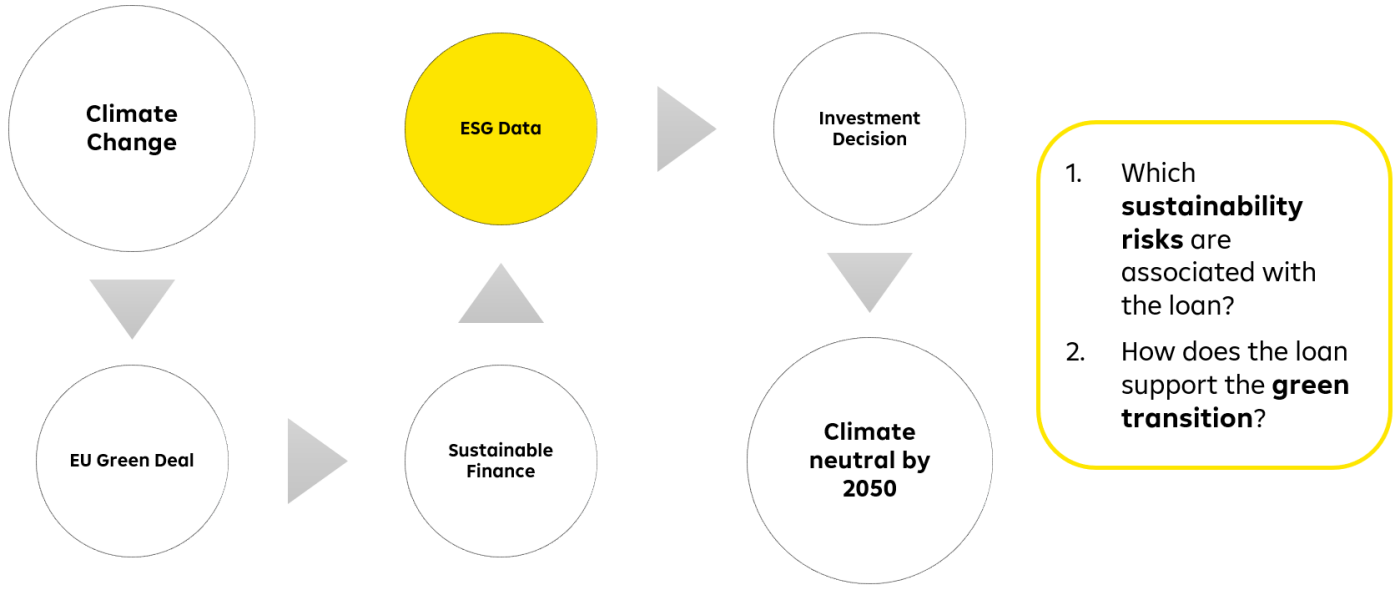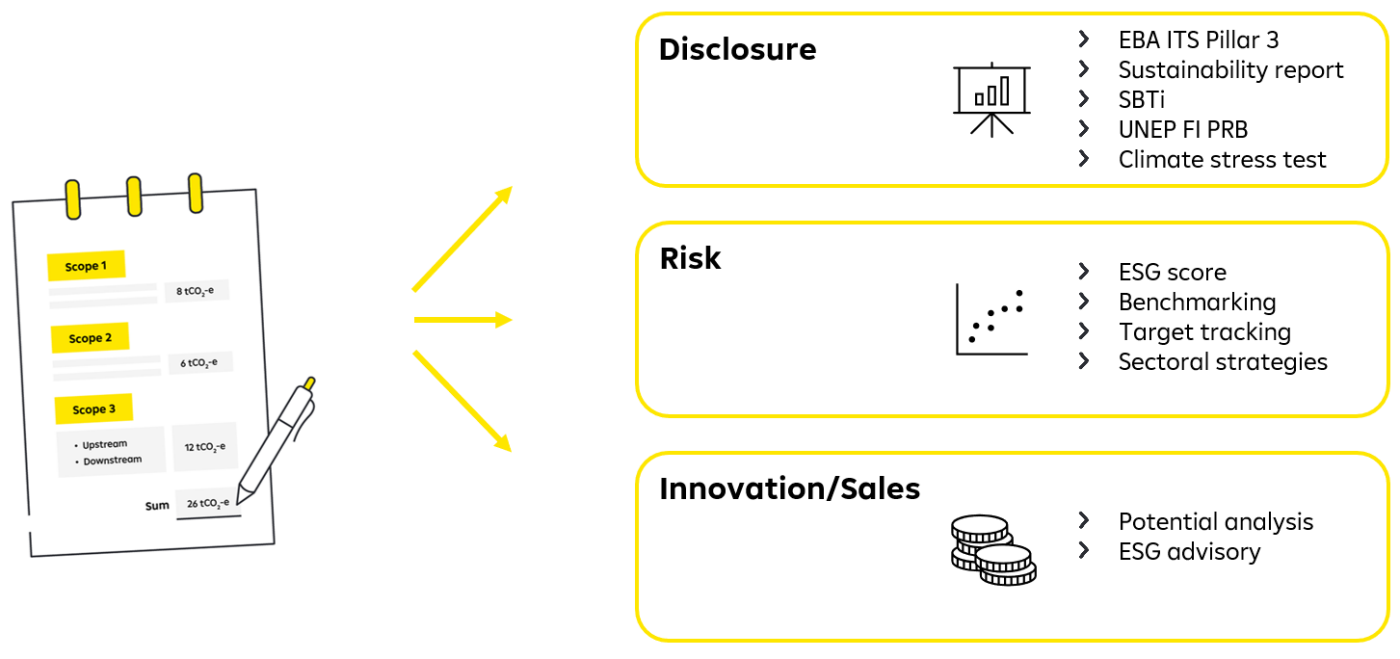
The Transformative Power of ESG Data: Paving the Way for More Sustainable Businesses
In recent years, environmental, social, and governance (ESG) considerations have gained significant prominence worldwide. As sustainability concerns continue to shape global discourse, financial institutions are recognizing the urgent need to integrate ESG data into their decision-making processes. ESG data is important for companies and investors alike – RBI has recognized this importance. We’ve talked to Matthias Frisch, Product Owner ESG Data Hub at RBI, about the reasons behind the growing importance of ESG data and its transformative potential in making companies and banks fit for the future.
Benchmark, compare and track
“ESG data can include many aspects – from a company’s CO2 emissions to its water consumption to responsible production”, Matthias Frisch explains. Collecting this data is the first step in measuring a company’s ESG performance, and it can be further used to create benchmarks, compare companies, and track progress over time. “The good news is: ESG data also brings a lot of benefits.”
Sustainable finance is founded on the availability of ESG data – without it, we can hardly change towards a sustainable economy. There is good news, though: ESG data has benefits for both RBI and our customers.
Why do banks need ESG data?
“We can identify and mitigate potential risks associated with unsustainable business practices by ESG data”, states Frisch. This risk-aware approach not only protects banks from potential losses but also contributes to the overall stability of the financial system. At the same time, companies can benefit from the data treasure trove of their house bank, for example by enabling peer group comparisons or jointly determining the ESG target progress."
| Examples of ESG-related risks: |
|---|
|
Preserving a healthy environment
The mounting environmental challenges, such as climate change, resource depletion, and pollution, necessitate a comprehensive understanding of a company's ecological impact. ESG data provides insights into an organization's carbon footprint, energy consumption, waste management practices, and other environmental factors. “Armed with this information, banks can assess the environmental risks associated with their investments and develop strategies to support sustainable initiatives”, describes Frisch as one of the reasons why we need ESG data.
Fostering social responsibility
“Secondly, ESG data helps assess the social impact of a business.” By examining factors like labor practices, diversity and inclusion, community engagement, and supply chain ethics, banks can identify companies that demonstrate responsible business practices. This enables banks to support organizations that uphold human rights, promote fair working conditions, and contribute positively to society, aligning their investments with broader social goals.
Enhancing governance practices
Governance is the third critical aspect of responsible banking. ESG data allows to evaluate the governance structures and practices of potential partners, including remuneration schemes, bribery and corruption policies, and adherence to ethical standards. “This information helps to make informed decisions about partnerships, mitigating the risk of association with entities involved in corruption, fraud, or unethical practices”, continues Frisch.
Business opportunities
By favoring organizations with robust ESG performance, banks incentivize the transition towards greener business models and support the development of sustainable industries. Through constructive dialogue, we could encourage companies to make sustainable investments supported by our bank”, emphasizes Frisch.
A win-win for the future of our society
ESG data is emerging as a powerful tool to drive sustainability. “Companies and banks working together to improve the environment thus create the living space for a well-functioning society, which in turn is the basis for a thriving economy.
ESG data is the missing link in the transition to a sustainable economy

How do we use our customers’ ESG data?

Be the first
Subscribe to Raiffeisen Insights. Get an e-mail with
the latest trends in the world of economics and business.